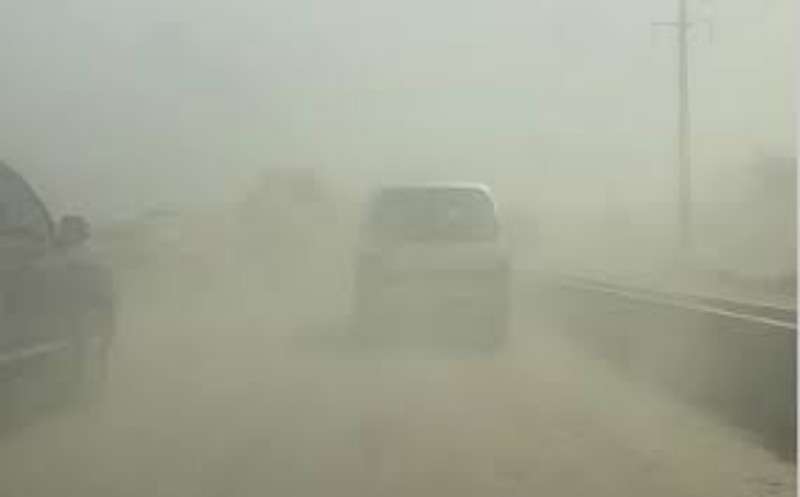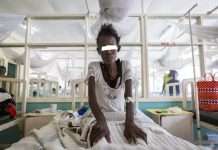
Nigeria is currently experiencing the harmattan season, characterised by dry, dusty winds blowing from the Sahara Desert. Known to pose risks to one’s health, it’s important to know coping strategies with the weather.
The harmattan season typically spans from late November to early March and brings significant weather changes that can impact our health, particularly increasing the prevalence of colds and catarrh alongside other respiratory issues.
According to weather forecast reports, the peak of harmattan is usually in December and January when the dry, dusty winds emanating from the Sahara Desert is at it’s peak, thereby leading to cooler temperatures, low humidity, and poor air quality.
As of December 26, 2024, the Nigerian Meteorological Agency (NiMet) has forecast a three-day dust haze across the country, reducing visibility to 1 kilometer or less.
In Lagos, the weather is humid with hazy sunshine, and temperatures are expected to remain high, with daytime highs around 90°F (32°C) and nighttime lows around 77°F (25°C).
The dry and dusty conditions during harmattan can exacerbate respiratory issues such as asthma and bronchitis. The Federal Ministry of Health has issued alerts indicating that dust can aggravate these conditions and may cause eye irritation.
The dry air and dust prevalent during harmattan can irritate the respiratory tract, leading to symptoms like sore throat, runny nose, and nasal congestion which are common indicators of colds and catarrh.
Additionally, the low humidity can dry out the mucous membranes of the nose, diminishing their effectiveness in filtering out viruses and bacteria, thereby increasing susceptibility to infections. More so chapped lips and dehydration are challenges posed with the season.
A Cardiologist from the Aminu Kano Teaching Hospital, Dr Naser Ishaq Ahmad, recommends several measures to help people protect themselves against the health challenges posed by the harmattan season. He gave the medical advice in an article published on The Daily Reality.
Preventive measures against cold and catarrh
Stay Hydrated: According to Dr Ahmad, “Drinking plenty of water is crucial to keeping both the skin and respiratory system moist.” Staying hydrated ensures mucous membranes remain intact, providing a barrier against infections.
Use Humidifiers: The dry air can cause respiratory discomfort. Ahmad highlights that using a humidifier indoors can “help add moisture to the air, reducing irritation to the skin and respiratory tract.”
Consume more Vit C: “A diet abundant in fruits and vegetables strengthens the immune system, making the body more resilient to infections,” he stated. Dr Ahmad advises consuming fruits rich in vitamin C, such as oranges and tangerines, into daily meals.
Practice good hygiene: He stresses the importance of frequent handwashing, stating that “clean hands reduce the risk of transmitting germs and viruses during the Harmattan season.” Avoid touching your face with unwashed hands to further prevent the introduction of pathogens.
Wear protective masks : Wearing face masks or scarves over the nose and mouth can filter out harmful particles in the dusty environment. Dr Ahmad emphasises that this is particularly beneficial for individuals with pre-existing respiratory conditions such as asthma or allergies.
Keep living spaces clean: To minimise exposure to indoor dust and allergens, Dr Ahmad recommends regular cleaning. “Using a damp cloth to clean surfaces ensures that dust particles are removed effectively without becoming airborne,” he notes.
Dress appropriately: The cold mornings and evenings during Harmattan require suitable clothing. “Wearing warm, layered clothing helps maintain body warmth and prevents cold-related illnesses,” Dr Ahmad advises.
It is essential to monitor weather reports from NiMet and health advisories from the Federal Ministry of Health to stay updated on current conditions and recommended precautions.










